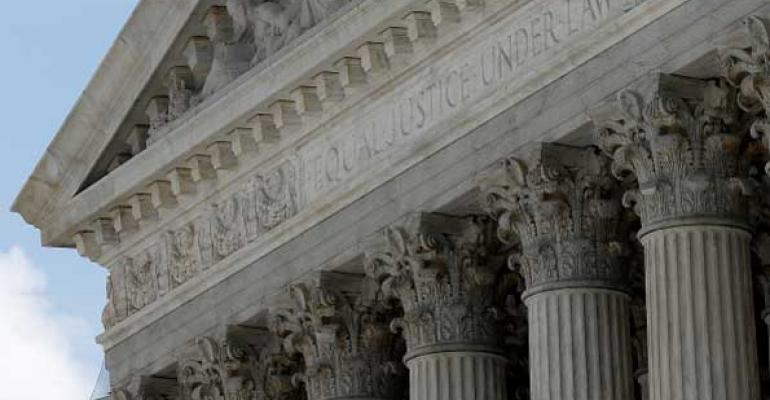(Bloomberg) --
A divided U.S. Supreme Court said the president has broad power to fire the director of the Consumer Financial Protection Bureau, ruling that Congress went too far in trying to insulate the agency from political pressure.
The justices on Monday backed the Trump administration in the separation-of-powers clash, striking down a provision that protected the director from being fired and putting the CFPB and potentially other federal agencies more firmly under presidential control. The court stopped short of abolishing the agency altogether.
The ruling marks a major change for the CFPB, the brainchild of now-Senator Elizabeth Warren created after the 2008 financial crisis to regulate credit cards, auto loans and other consumer finance products. Congress gave the director a five-year term, plus a shield from dismissal except in cases of “inefficiency, neglect of duty, or malfeasance in office.” Supporters said the protections have helped ensure the bureau isn’t beholden to powerful banks.
But the court said the Constitution doesn’t let Congress give an agency director so much freedom from elected officials.
“Such an agency lacks a foundation in historical practice and clashes with constitutional structure by concentrating power in a unilateral actor insulated from presidential control,” Chief Justice John Roberts wrote. Roberts didn’t say how the ruling would affect the agency’s current enforcement actions.
The case splintered the court along ideological lines, with the four liberal justices saying they would have left the removal protections intact.
The ruling could affect the Federal Housing Finance Agency, which regulates Fannie Mae and Freddie Mac and is facing a multibillion-dollar lawsuit that raises similar issues. The Supreme Court had deferred acting on appeals in that case while it considered the CFPB clash.
Although the ruling is a victory for Trump’s administration, the decision paradoxically could undercut his appointed CFPB director, Kathy Kraninger, letting her be replaced should Democrat Joe Biden win the November election.
President Barack Obama appointed the first CFPB director, Richard Cordray, whose ambitious agenda included rules designed to curb banks’ use of mandatory arbitration and a case against Wells Fargo & Co. for setting up customer accounts without permission.
With Trump unable to fire him, Cordray stayed on for almost a year of the current president’s term before stepping down in 2017 to run unsuccessfully as a Democratic candidate for governor of Ohio.
The case is Seila Law v. CFPB, 19-7.
To contact the reporter on this story:
Greg Stohr in Washington at [email protected]
To contact the editors responsible for this story:
Joe Sobczyk at [email protected]
Laurie Asséo
